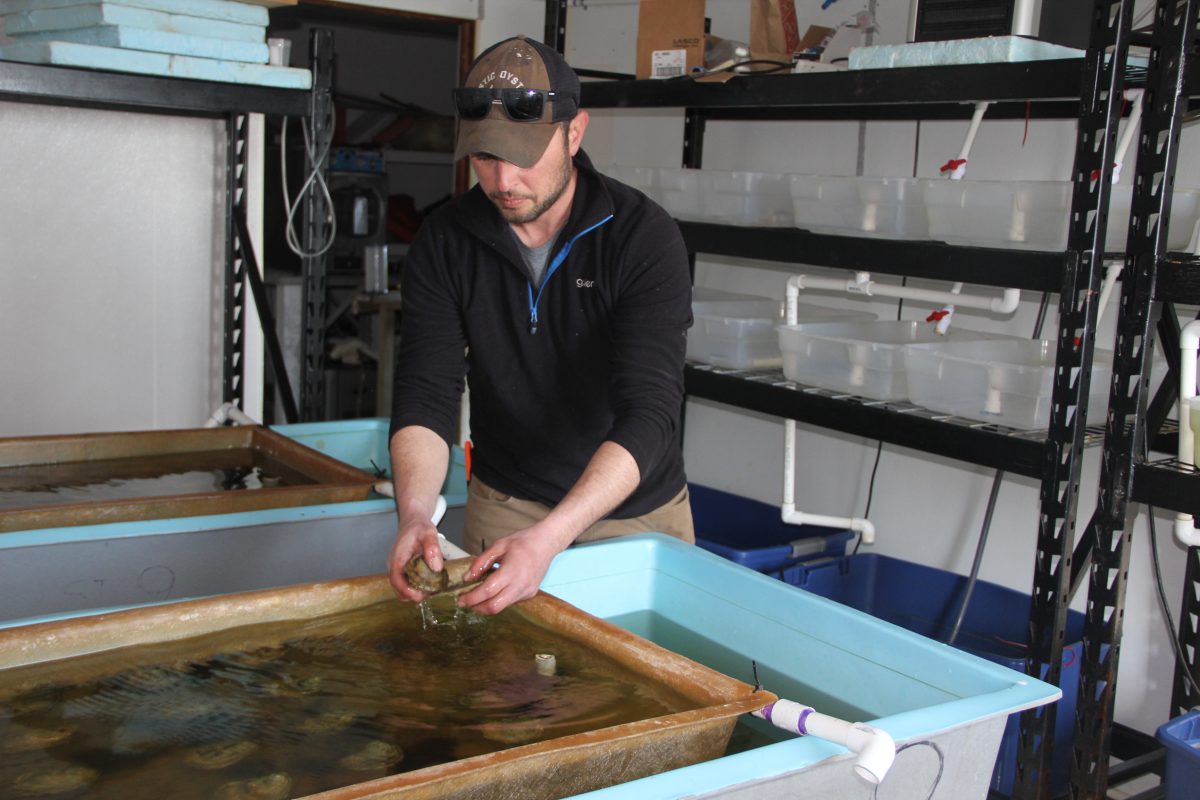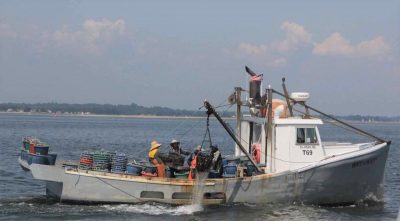
Sales revenue for Connecticut aquaculture producers fell an average of 93 percent in February and March compared to the same period in 2019, and 70 percent of the workforce employed in shellfish, seaweed and finfish farming operations have been laid off due to impacts of the COVID-19 pandemic.
These are some of the findings of a preliminary summary of a survey of Connecticut’s aquaculture producers. It was conducted by Connecticut Sea Grant, UConn Extension and the Connecticut Department of Agriculture to assess impacts of the pandemic on the industry and inform assistance plans. Sea Grant, the Department of Agriculture and the National Oceanic and Atmospheric Administration are using the list of specific actions recommended by the respondents to design the most effective means of providing short- and long-term assistance, including grants and loans.
Among programs that may be available to aquaculture producers are one-year, no-interest loans to affected small businesses and nonprofits announced Thursday by Gov. Ned Lamont. The Connecticut Recovery Bridge Loan Program made $25 million available to Connecticut businesses and nonprofits that have 100 or fewer employees to assist with cash flow.
In an email message Thursday, Sea Grant, the Department of Agriculture and UConn Extension shared the results of the survey with the Connecticut aquaculture industry and said assistance plans are being developed by state and federal agencies.
“We can only assume that it must have been very difficult to provide the details of the catastrophic losses you are facing at the moment,” the message said. “Rest assured that our agencies are working together to share this information as broadly as possible so that we and others can identify aid and relief programs.”
Distributed on Monday, the preliminary survey results represent the anonymous responses of 33 of the state’s 49 aquaculture businesses, or 67 percent.
Among comments received from the oyster, clam, finfish and seaweed growers were:
- “We’re in a total free fall.”
- “This is having a ripple effect through multiple communities.”
- “Farmers market shutdowns or exclusion of guest vendors shuts down a massive revenue stream.”
- “….We will have a lengthy dip in business as people won’t be going out for dinner.”
- “Nervous for upcoming season opening, permit approvals and weather opening and closures.”

While Gov. Lamont’s “Stay Home, Stay Safe” order exempted essential businesses including aquaculture operations from closure, the statewide shutdown of restaurants and bars (except for take-out orders) account for the majority of the sales of fresh aquaculture products. While this caused a near-halt in aquaculture sales statewide, some businesses are selling through local farmers markets, farm stands and online. Others expressed interest in doing so.
In response, Connecticut Sea Grant and UConn Extension have distributed guidance on direct marketing of aquaculture products to all producers. The State Department of Agriculture/Bureau of Aquaculture is also working with local health departments and districts to fast-track producer applications for sales at these venues.
Connecticut Sea Grant is assisting producers with their applications for direct sales and federal Small Business loans, and working with the Department of Agriculture to identify additional aid for producers.
Updates for producers are posted at: http://aquaculture.uconn.edu.
Other survey findings include:
- A total of 251 full- and part-time employees have been laid off in February and March, about 70 percent of the workforce. It is important to note that most Connecticut aquaculture operations are small, family-owned businesses with less than five employees.
- Half of respondents said they had product returned or that had to be destroyed after delivery to wholesalers or restaurants that were closed. They also reported that while “some” of their customers were paying invoices, a large number are behind on payments.
- Top near-term concerns expressed by producers include: cash flow; how soon markets will recovery; defaulting on government loans and invoices; losing employers to other industries; people staying healthy; long-term or permanent restaurant closures.
- Top concerns over the next few months include: product demand; ability to travel to markets; ability of state agencies to maintain essential services for aquaculture businesses; and paying health insurance premiums.
- Ways that federal and state agencies can help include: providing information on grants, loans, and online sales, shipping and packing options; and eliminating lease fees.
For more information: Judy Benson, Connecticut Sea Grant communications coordinator (860) 287-6426; judy.benson@uconn.edu.